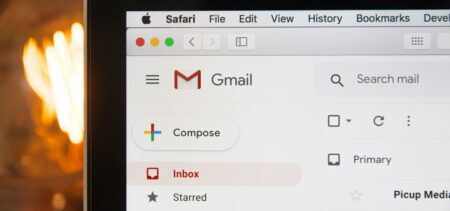Celebrities are out – and influencers are in. It seems like social media has brought “ordinary people” to the forefront, and along with them, the rise of influencer marketing. According to Adweek, Influencer marketing is a form of marketing in which focus is placed on influential people rather than the target market as a whole. It identifies the individuals that have influence over potential buyers, and orients marketing activities around these influencers.
Think of influencer marketing as word-of-mouth marketing on steroids. A typical consumer that has a positive experience with your business can directly relay it to several, maybe tens of people. An influencer can have millions of subscribers/followers, and a viral video can even surpass that.
Keep in mind, though, that it’s not as easy as finding a person with a decent following to promote your products. According to Forbes, there are some factors you need to keep in mind when recruiting influencers for your brand:
Reach is the number of people that will receive your influencer’s message. Most influencers have a primary platform, where they post most of their content – or at least the main type of content. For example, a YouTube creator with millions of subscribers might post more often on Instagram, but their main content is still on YouTube. Internet celebrities with large followings also tend to have a good reach on their secondary platforms, so you shouldn’t necessarily build your strategy on just one channel. Even though reach is important, it can be canceled out by other factors.
Contextual credibility is the audience’s level of trust in the influencer’s expertise on a certain topic. For example, if you’re promoting a new face cream you won’t ask a bodybuilding influencer to do it – you go to a skincare or makeup influencer.
Salesmanship is not a new concept – it’s the influencer’s ability to endorse your product. They need to have the presence and the charisma to convince people of their point of view. Talented influencers explain things in a convincing manner, deliver a clear message and express their opinions with confidence.
To add to Forbes’ list, we have to note a recent hot topic when it comes to online celebrities: reputation. Just like celebrity endorsements, influencer marketing can go south in case the promoter does something controversial. Recent fiascos, such as YouTuber Logan Paul’s Japan daily vlog, highlight how fast an influencer can gain a bad reputation and turn brands away from his or her platform. This adds another dimension to choosing an influencer to promote your product: taking into account their reputation, as well as their risk of becoming a controversial figure. Choosing to work with a trusted and respected influencer with a more limited following is better for your brand image in the long run than choosing whomever has the largest following, regardless of reputation.
So you’ve found the right person to promote your product. What now?
Obviously, the easiest and most straightforward way to work with influencers is to pay them for sponsorships. However, this isn’t necessarily influencer marketing, it’s celebrity endorsement. Whenever you pay a social media celebrity to promote a product, your relationship must be signaled in a transparent way, by using the appropriate hashtag in the post, both in the title and the description (#ad). This way, the audience knows that they’re being paid to promote the product, so they don’t really trust the information. It might make them take note of the product, but it won’t be as effective as an honest recommendation.
True influencer marketing requires you to play the long game – and involves no financial compensation. It comes down to creating a sincere, mutually beneficial relationship with the celebrity. The best way to create a bond with an influencer is to offer them useful, unique, exclusive or early information or products. You can give them exclusive access to new products before launch, whether you invite them to an event or send the product itself out in a PR package. If they like the product, chances are it will be mentioned on their social media channels – and a genuine recommendation is obviously much more valuable than a sponsored post. Even if the review also mentions drawbacks – it’s much more likely to generate hype and bring in customers than an obviously sponsored post.
The bottom line is that if you have a good product, the influencer is going to make note of it and recommend it sincerely to their followers. The beauty of influencer marketing is that you’re forming a genuine connection with your promoter, not just signing a contract – which means that you’re creating lasting brand loyalty. In turn, you’re borrowing the reach, credibility and salesmanship of a community of influencers to advocate your product to consumers – resulting in a much more powerful, yet genuine message.





































